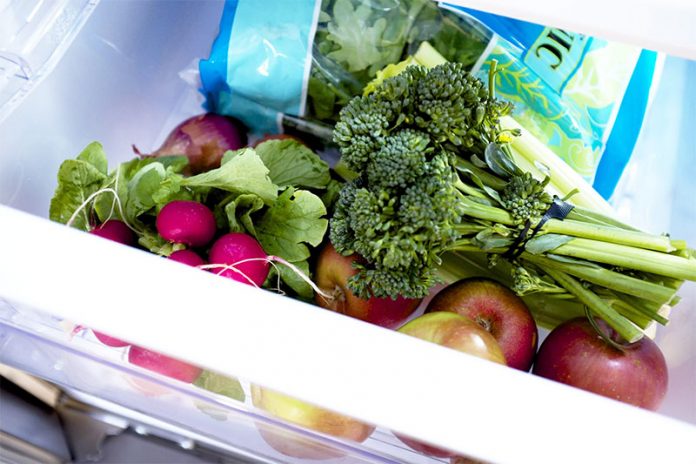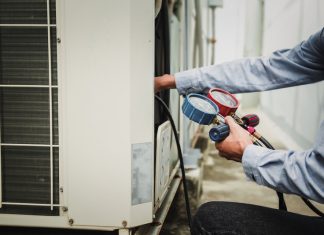How long does a fridge last? It’s a crucial question if you’re a homeowner, and especially if your refrigerator is getting older. While you will have to buy a new refrigerator eventually, it’s a major purchase. If your fridge breaks down, you could still lose a lot of food, even if it can be repaired. And that’s on top of the cost of the repair itself.
So, it’s vital to take good care of your refrigerator, so you can get as much use out of it as possible. If you maintain it well, you could avoid refrigerator breakdowns, and get a few more years out of the appliance while you’re at it. For the most part, you can extend the life of your refrigerator just by keeping it clean and avoiding common usage mistakes.
1) Clean the Condenser Coils Regularly
When you need repair service for a refrigerator that won’t cool, chances are the condenser coils could be to blame. The condenser coils on the back of your fridge are what keeps it cold inside. But they’re usually exposed, either behind a grill or completely uncovered, and they can attract dust, pet hair, dirt, kitchen grime, and other gunk that can stick to the surface of the coils and impair their ability to dissipate heat. Every four to six months, pull your fridge out from the wall and vacuum the coils with your vacuum’s soft brush attachment. If there’s a grill covering the condenser coils, go ahead and pop it off first, and then vacuum that, too.
2) Don’t Use the Top of Your Fridge as Storage
It can be tempting to stick your 32-pack of paper towels or your less-used appliances on the top of the fridge, especially if you don’t have much storage space in your kitchen. But putting things on top of the fridge can also impair its ability to dissipate heat, and that can put undue strain on the appliance that shortens its lifespan. Keep the top of your refrigerator clear, and if you have cabinets up there, make sure you have at least one to two inches of clearance above the appliance.
3) Keep the Door Gaskets Clean
The gaskets around the edges of your refrigerator doors trap cold air inside the appliance, but food residue and other gunk can easily build up on them. Every time you clean your kitchen, wipe down your refrigerator gaskets with a soapy, wet sponge. Use a disinfectant to remove any mold, but refer to your owner’s manual to make sure you’re not accidentally using something that will damage the rubber of the seals. Dry off the gaskets with a paper towel before closing the fridge, so that the excess water doesn’t cause mold growth. If you notice any damage to your commercial refrigeration gaskets, replace them immediately.
4) Keep It Away from the Stove
Having a heat source, like your oven, cooktop, or range, right next to your fridge can force the motor to work too hard, shortening the lifespan of the refrigerator. The same is true when you install a second refrigerator in a non-climate-controlled garage. However, unless you keep your garage air-conditioned to the same degree as the living space in your home, or you live in a region where temperatures stay cool in the summer, the ambient heat in your garage can also put undue strain on your refrigerator. Put your second refrigerator in a basement, where it can stay cool, and move your stove away from your kitchen refrigerator, or vice versa.
5) Be Careful How You Store Your Food
When it comes to how you use your refrigerator, there are two mistakes homeowners make that shorten the lifespan of these appliances. One is putting hot food away in the freezer or fridge. Your refrigerator has to work harder to cool hot or warm foods, so, if possible, let foods cool for a short time before putting them in the fridge or freezer. To maintain food safety, don’t leave food out for more than two hours before refrigerating it. To avoid putting undue strain on your fridge, divide large containers of hot foods into smaller, shallower ones. You can also place a container of ice in your fridge along with hot or warm foods, to help balance the interior temperature as the hot foods cool down.
The second mistake is keeping your fridge too empty or too full. When your fridge is packed full, it will struggle to keep the food inside cool because of the lack of air circulation between items. However, if it gets too empty, it can also struggle to maintain a constant interior temperature. Use bottles or jugs of water to take up empty space inside your refrigerator.
Your refrigerator is perhaps your most important appliance. Without it, you can’t store food safely, and when it breaks down, you could find yourself scrambling to repair or replace it. Take good care of your fridge, so you can get the most out of your appliance and avoid costly breakdowns.














